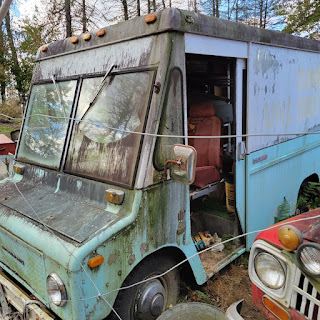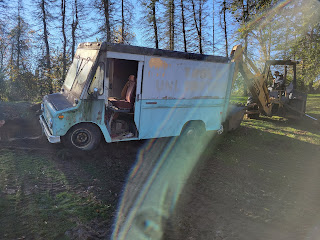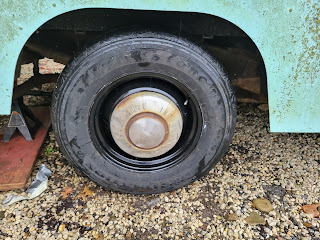A little over a year ago, I picked this '56 Pontiac wagon up for a personal vehicle. It was running and driving with a 350/350 combo and a Camaro subframe. The car is fairly solid with very little rust. I knew there were some issues mechanically, but I told myself that I was just going to drive it and enjoy. Well, one thing led to another and it turned into a project. Isn't that how it always goes?
Overall, it wasn't terrible. The engine ran well but nothing was cleaned up when it was installed. The car did have a new wiring harness, but like everything else, it need some attention. Ultimately, I wanted a good reliable driver that I could load the family in, hook up the camper and have a fun weekend.
The more I investigated, the more that I was unsatisfied with the installation of the subframe. So out came the engine to address a laundry list of issues. The Pontiac frame was quite a bit wider than the subframe where the legs come down. Instead of cutting the legs off, there were copious amounts of angle iron used to bridge the gaps. The X-frame was cut fairly severely and the transmission cross member prevented any exhaust being able to be tucked up out of the way. Luckily, the subframe was installed squarely so it didn't need to come completely out.
Working on one side at a time, the subframe rails and excess angle were cut off. 1/8" thick plate was use to blend the remain subframe into the original chassis. The X-frame was rebuilt so that a new transmission cross member could be built that allowed for the exhaust to pass through.
On Pontiacs, unlike tri-Five Chevys, the heater was located on the firewall on the drivers side and the pedals were mounted under the floor board. I assume whoever installed the subframe, installed a set of swing pedals and power booster. As you can see from the pictures, it required addressing as well.
At this point, where do you stop? I was in it all the way, so why not fix everything?
























































